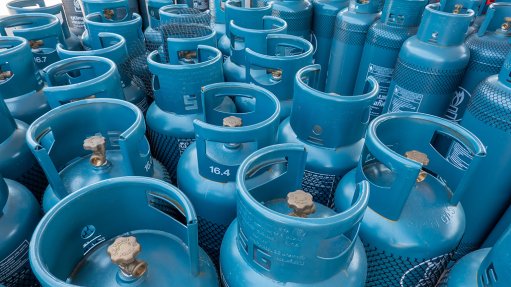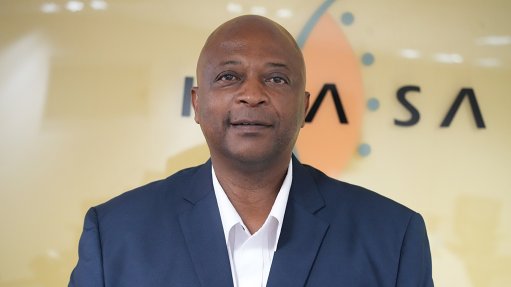Second-generation Presidents
As I have pointed out before, the flare-ups of anti-immigrant sentiment among some communities in our beloved Mzansi do not define South Africans – especially those very low on the socioeconomic totem pole, where this sentiment mostly manifests – as inherently xenophobic.
Rather, this is symptomatic of an economy that is misfiring and is thus unable to meet citizens’ demands for jobs and service delivery, among others. Those familiar with the history of Africa will recall that, in 1983, Nigeria expelled about three-million Ghanaians who had been living and working in the country for more than a decade. The ‘Neighbours from the West’, as they were popularly referred to, had started pouring into Nigeria since the early 1970s, drawn by a crude-oil-fuelled economic boom. The expulsions were prompted by a major oil price crash – from $37/bl in 1980 to $29/bl in 1983.
A further 700 000 Ghanaian were expelled in 1985, during Muhammadu Buhari’s first stint as head of State, albeit as a military leader who had shot his way to power.
But Africans have proved that, when the economy is not in distress, they are prepared to embrace non-natives. Take the Angolans, for example. When they could no longer tolerate Portuguese colonialism and decided to take up arms, one’s origins or descent was not an issue at all.
Among the leading lights of the Angolan struggle for independence was one Jose Eduardo dos Santos. It did not matter that his parents were born in São Tomé and Príncipe. When independent Angola’s first President passed on, he succeed him and would lead the country until 2017.
It’s a pity he ended up regarding the Angolan State as his personal fiefdom. He appointed some of his children to key parastatals, and some of them went on a looting spree at these organisations. The most infamous is Isabel, his first-born, reportedly Africa’s richest woman, who stands accused of using her father’s influence to build a business empire worth an estimated $2.1-billion. Her assets have now been frozen. Last month, prosecutors charged her with money laundering, harmful management, forgery of documents and other economic crimes when she was head of national oil company Sonangol from 2016 to 2017.
But Dos Santos was not the only child of immigrants to have ascended to the helm of an African country in modern times. Kenneth Kaunda, who led Zambia from independence in 1964 until his 1991 ousting by Frederick Chiluba’s Movement for Multiparty Democracy, was actually a second-generation Zambian. His father, a teacher and ordained minister in the Church of Scotland, and his mother, also a teacher, were both born and raised in Malawi. They moved to Zambia as missionaries.
Kaunda was able to become Zambia’s President before the country’s Constitution was tweaked to bar those with foreign-born parents from contesting. This was engineered by Chiluba to prevent Kaunda from running against him when his first term ended in 1996.
A casualty of that change was Guy Scott, who served as Vice President from 2011 to 2014. When his boss, Michael Sata, died in office, he became interim President for about three months. He, however, could not take the job permanently, as he was the son of a Scottish father and an English mother.
Jerry Rawlings, who governed Ghana from 1981 to 2001, first as a military head of State and later as a democratically elected President, is not a Ghanaian phaqa (thoroughbred Ghanaian), as my Zulu friends would say. His father was a Scotsman.
But Somalia is perhaps the most liberal African country in terms of who can become President. The current leader, Mohamed Abdullah Mohamed, is a Somali-American. Although he was born in Somalia, he obtained American citizenship in 1988 and spent the next few decades working for various tiers of the US government.
If it were not for our poorly performing economies, we would not be at each other’s throats. Eish!
Comments
Press Office
Announcements
What's On
Subscribe to improve your user experience...
Option 1 (equivalent of R125 a month):
Receive a weekly copy of Creamer Media's Engineering News & Mining Weekly magazine
(print copy for those in South Africa and e-magazine for those outside of South Africa)
Receive daily email newsletters
Access to full search results
Access archive of magazine back copies
Access to Projects in Progress
Access to ONE Research Report of your choice in PDF format
Option 2 (equivalent of R375 a month):
All benefits from Option 1
PLUS
Access to Creamer Media's Research Channel Africa for ALL Research Reports, in PDF format, on various industrial and mining sectors
including Electricity; Water; Energy Transition; Hydrogen; Roads, Rail and Ports; Coal; Gold; Platinum; Battery Metals; etc.
Already a subscriber?
Forgotten your password?
Receive weekly copy of Creamer Media's Engineering News & Mining Weekly magazine (print copy for those in South Africa and e-magazine for those outside of South Africa)
➕
Recieve daily email newsletters
➕
Access to full search results
➕
Access archive of magazine back copies
➕
Access to Projects in Progress
➕
Access to ONE Research Report of your choice in PDF format
RESEARCH CHANNEL AFRICA
R4500 (equivalent of R375 a month)
SUBSCRIBEAll benefits from Option 1
➕
Access to Creamer Media's Research Channel Africa for ALL Research Reports on various industrial and mining sectors, in PDF format, including on:
Electricity
➕
Water
➕
Energy Transition
➕
Hydrogen
➕
Roads, Rail and Ports
➕
Coal
➕
Gold
➕
Platinum
➕
Battery Metals
➕
etc.
Receive all benefits from Option 1 or Option 2 delivered to numerous people at your company
➕
Multiple User names and Passwords for simultaneous log-ins
➕
Intranet integration access to all in your organisation


















